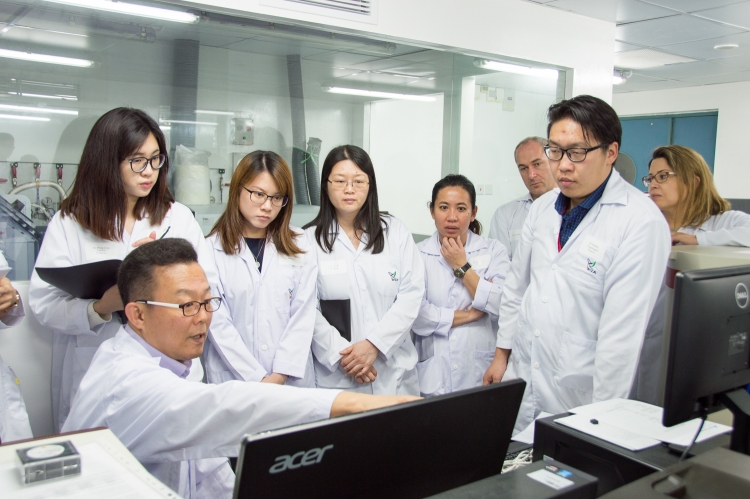Seventeen specialists in food safety from Singapore, Mongolia and Tunisia participated in a training course on Radionuclides in Food organised by the International Atomic Energy Agency (IAEA) in cooperation with the Government of Singapore through the Agri-Food & Veterinary Authority (AVA) at the Veterinary Public Health Centre from 9 to 13 October 2017.
Food safety and quality have become increasingly important world-wide in recent years, not only in terms of protecting the health of the consumer and ensuring food security, but also in regard to meeting international trade requirements. The training course was designed to provide participants with knowledge to set up or upgrade capabilities for radionuclide testing in food, and to implement appropriate monitoring programmes in their own countries and enable more effective contributions to relevant standard/guideline setting and implementation. The training also provided an opportunity for networking among the participating institutions and staff.
The course, conducted within the framework of an IAEA technical cooperation project[1], with support from the IAEA/FAO Joint Division of Nuclear Techniques in Food and Agriculture, focused on strategic food monitoring and sampling plans, and provided participants with an overview of radiological analytical techniques. The course also included laboratory sessions to enhance the participants’ practical knowledge of radionuclide analysis in food. Standards and regulations for radionuclides in food and drinking water, together with specific examples, were presented and discussed.




